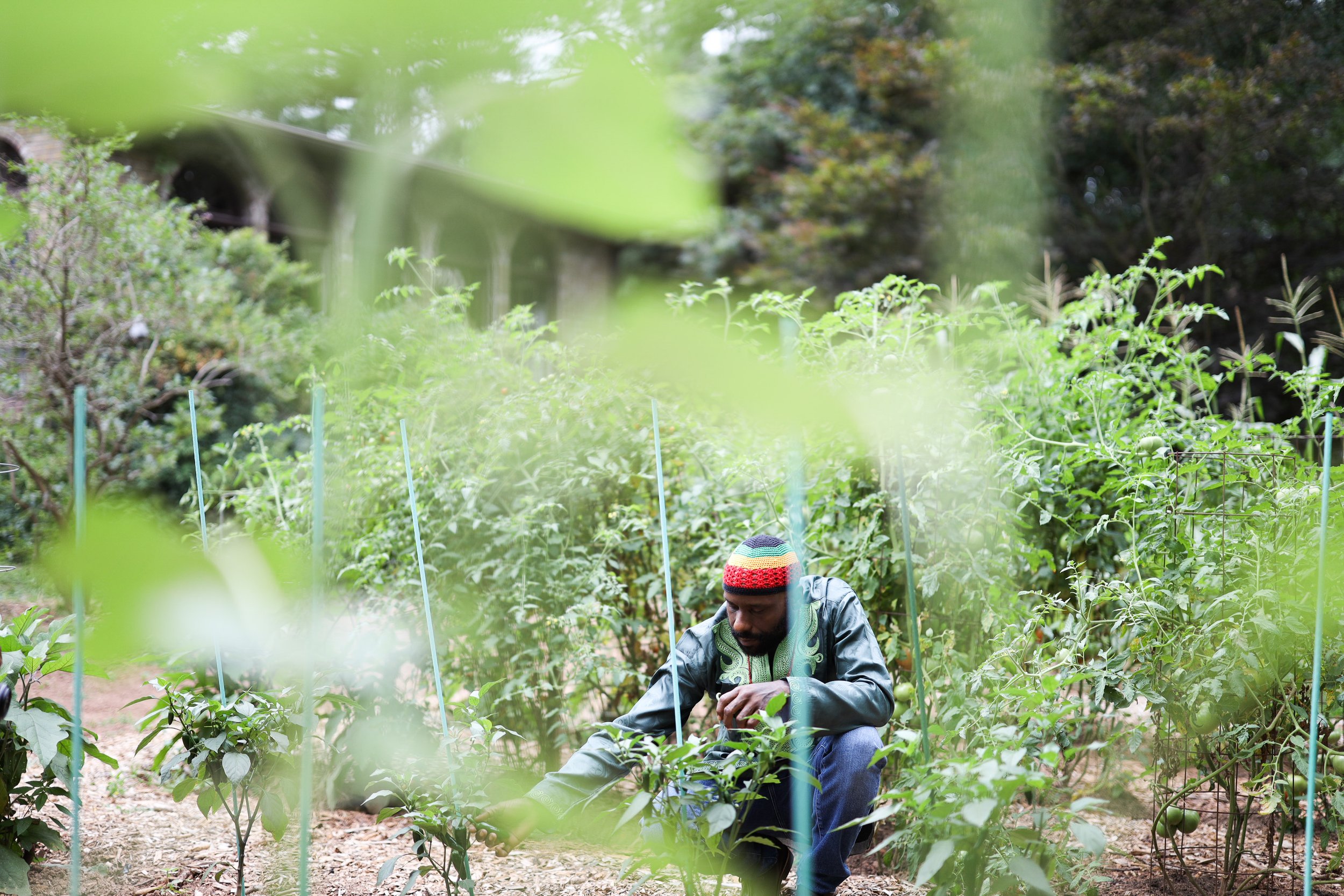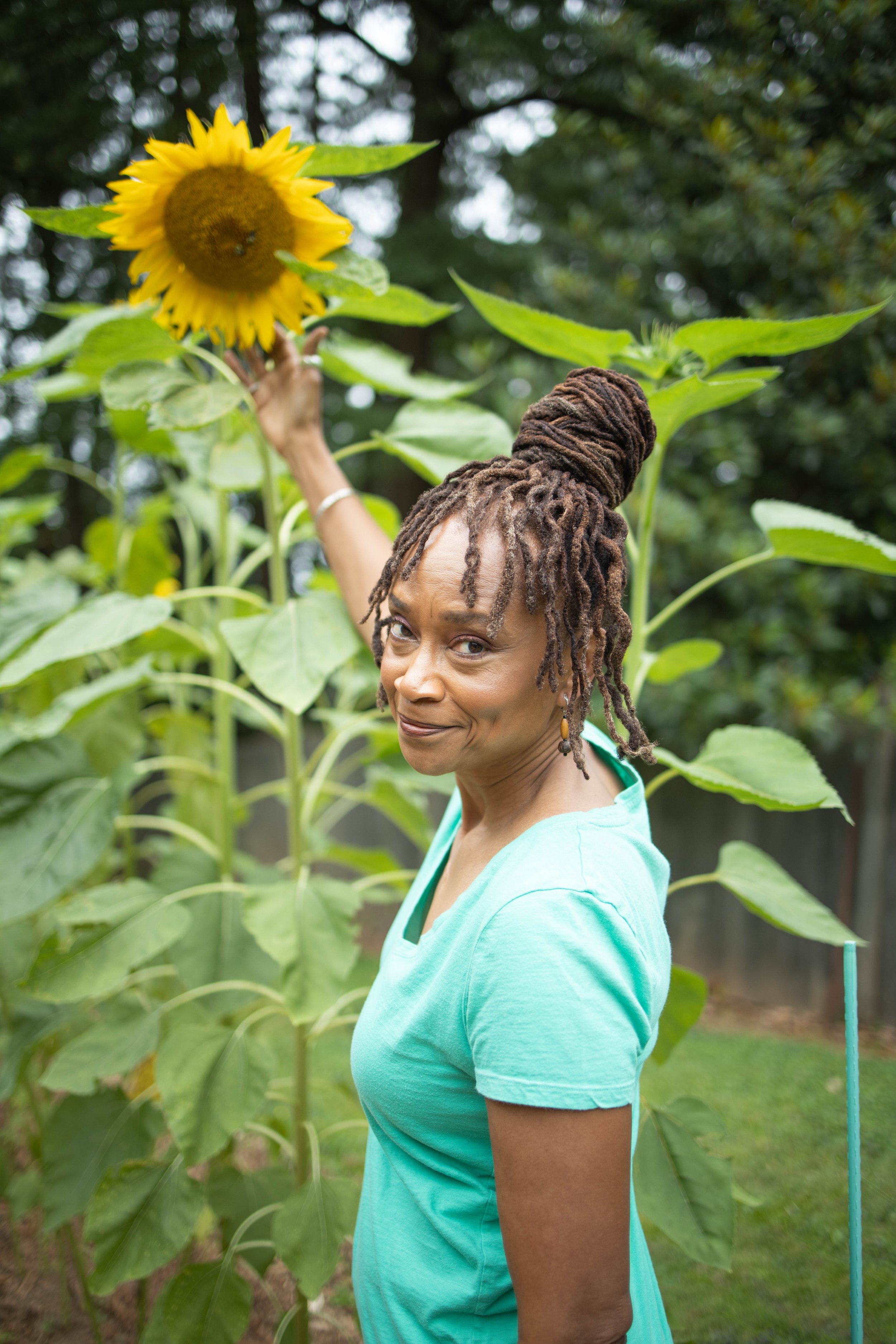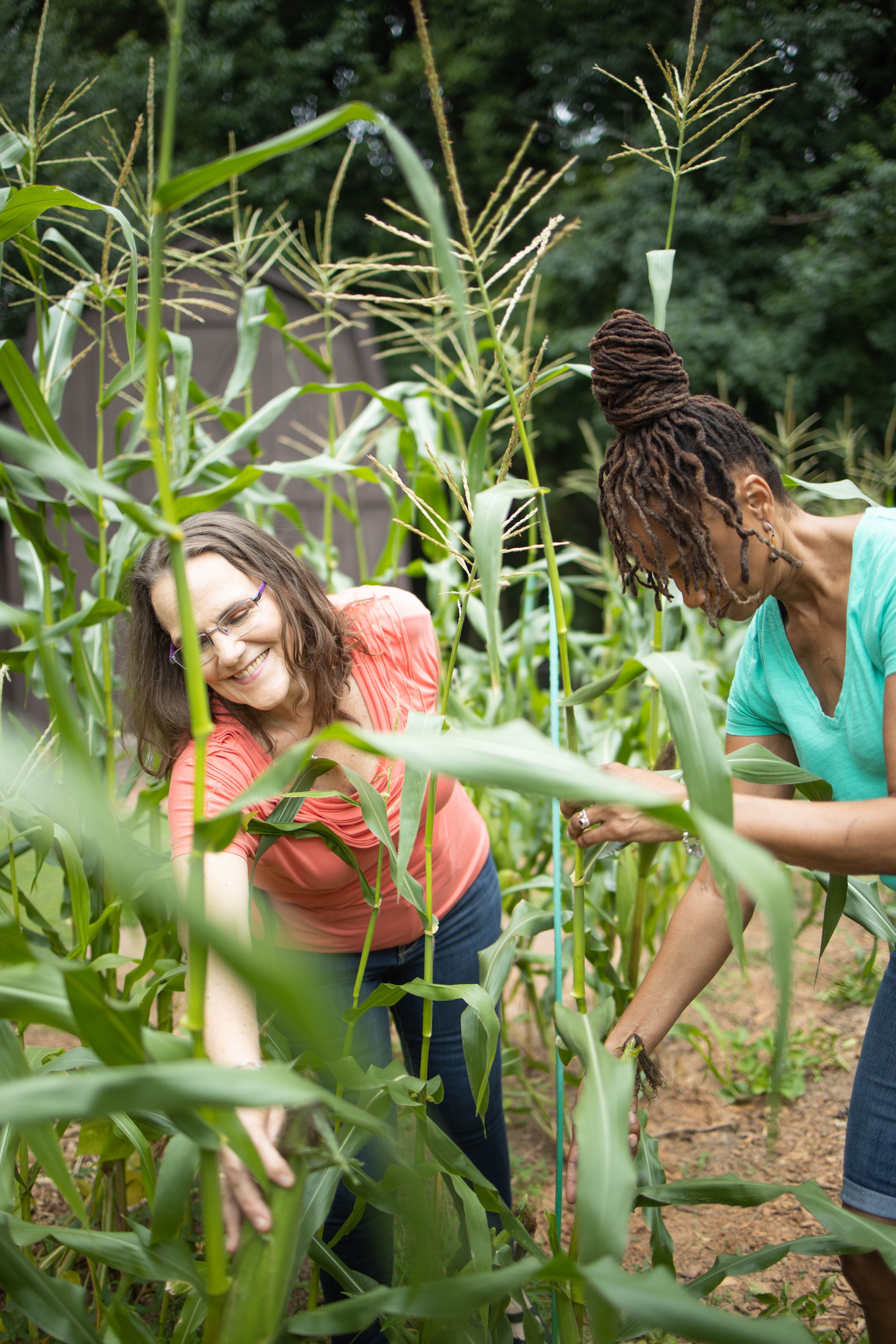Plant-Based Lifestyle
and Ancient Nutritional Treatment Strategies
An evidence-based, educational platform to help people transition to a more plant-based lifestyle including CBD and cannabis.
Who We Are
P.L.A.N.T.S. for Lyfe is an acronym for Plant-based Lifestyle and Ancient Nutritional Treatment Strategies for Lyfe. The P.L.A.N.T.S. for Lyfe team provides reliable, evidence-based guidance for anyone seeking information about plant-based living for health maintenance and healing.
At P.L.A.N.T.S. for Lyfe, we believe in the power of plant-based living to support health maintenance and healing. Our team, which includes experts in holistic medicine, herbalism, and nursing, provides reliable, evidence-based guidance on incorporating plant-based strategies into your daily life. This includes information on medical cannabis and other plant-based solutions.
We're dedicated to providing trustworthy, evidence-based guidance on plant-based lifestyle strategies, including ancient nutritional treatment strategies and medical cannabis
What We Do
At our core, our team at P.L.A.N.T.S. for Lyfe is led by a dual-board certified holistic physician, a Jamaican herbalist, and a registered nurse. Together, we provide trustworthy, expert guidance for healthcare workers and patients who are interested in incorporating alternative plant-based solutions into their health and wellness journeys. Our goal is to empower you with the knowledge and tools you need to make informed decisions about your health, and to support you every step of the way as you explore the many benefits of plant-based living. Whether you're interested in learning about the healing properties of CBD, exploring the potential of medical cannabis, or simply want to make healthier choices for yourself and your family, we're here to help.
Cannabis & Plant Nutrition Podcast
In this Podcast, the P.L.A.N.T.S. for Lyfe Team talk amongst themselves and with others about cannabis as part of a holistic lifestyle. Felecia L. Dawson, MD, Jamaican herbalist Oskii Chevanier and Marilyn Pierce, RN, touch on all things cannabis and plant-based nutrition with a splash of history and politics.
FAQ’s
If you don't see an answer to your question here, please don't hesitate to reach out to us directly. Our team is always happy to help answer any questions you may have about our products or services.
-
A plant-based lifestyle involves eating mostly or entirely plant-based foods, such as fruits, vegetables, whole grains, legumes, nuts, and seeds. This type of diet can offer numerous health benefits, including lower risk of chronic diseases such as heart disease, diabetes, and cancer. Plant-based foods are generally lower in calories, saturated fat, and cholesterol, while being rich in fiber, vitamins, and minerals. Some studies have also shown that a plant-based lifestyle can help with weight management, reduce inflammation, and improve gut health. By incorporating more plant-based foods into your diet and reducing your intake of animal-based foods, you may be able to improve your overall health and well-being.
-
Plant-based foods include fruits, vegetables, whole grains, legumes, nuts, and seeds. Some examples of specific plant-based foods include spinach, kale, broccoli, sweet potatoes, berries, apples, bananas, quinoa, brown rice, lentils, chickpeas, almonds, cashews, chia seeds, and flaxseeds.
To incorporate more plant-based foods into your diet, you could try adding more fruits and vegetables to your meals, such as adding spinach or kale to your morning smoothie or salad, or snacking on fresh fruit throughout the day. You could also experiment with new plant-based recipes, such as making a lentil soup or veggie stir-fry.
Another way to incorporate more plant-based foods is to make simple swaps in your meals, such as using plant-based milk instead of dairy milk, or using tofu or tempeh instead of meat in a stir-fry. Overall, there are many ways to incorporate plant-based foods into your diet, and making small changes over time can help you transition to a more plant-based lifestyle.
-
Plant-based solutions like CBD and cannabis have been shown to be effective for managing chronic pain, anxiety, and other health conditions. CBD, or cannabidiol, is a compound found in the cannabis plant that does not produce a "high" like THC, the psychoactive compound in cannabis. CBD can be taken in various forms, including oils, capsules, and topicals, and has been shown to have anti-inflammatory and pain-relieving properties.
Medical cannabis, which contains both THC and CBD, has also been shown to be effective for managing chronic pain, nausea and vomiting from chemotherapy, and spasticity from multiple sclerosis. However, medical cannabis is not legal in all states, and may not be appropriate for everyone due to potential side effects and interactions with other medications.
It's important to talk to your healthcare provider before using plant-based solutions like CBD or cannabis, and to ensure that you are using safe and effective products from a reputable source. Your healthcare provider can help you determine whether these solutions may be appropriate for your specific health needs and can advise you on how to use them safely and effectively.
-
Finding reliable information about plant-based solutions can be challenging, as there is a lot of misinformation and conflicting information available online. To ensure that you are making informed decisions about your health, it's important to look for information from reputable sources, such as peer-reviewed scientific journals, medical organizations, and healthcare providers.
One way to find reliable information is to look for sources that are backed by scientific evidence and research. You can start by searching for studies and articles on reputable medical databases, such as PubMed or Medline, or by consulting with your healthcare provider. It's also a good idea to check the credentials of the author or source, and to look for any conflicts of interest.
Another way to ensure that you are making informed decisions about your health is to be cautious of claims that seem too good to be true. While plant-based solutions like CBD and cannabis can offer numerous health benefits, there is no magic bullet or cure-all for every health condition. It's important to approach these solutions with an open mind, but also to be realistic and to consult with your healthcare provider to determine what options may be appropriate for your specific health needs.
Overall, the key to finding reliable information about plant-based solutions is to do your research, consult with your healthcare provider, and make informed decisions based on the best available evidence and information.
-
Adopting a plant-based lifestyle has shown promising results in supporting weight loss and better management of blood sugar levels. Plant-based foods are naturally low in calories and high in fiber, which can help you achieve and maintain a healthy weight. Additionally, complex carbohydrates found in plant-based diets can be broken down slowly by the body and result in more stable blood sugar levels. Research has demonstrated that incorporating organic foods into your plant-based diet may also provide additional benefits. Some of these are reducing exposure to harmful chemicals, more anti-oxidants for decreasing inflammation and increased nutrient density. It's important to work with a healthcare professional to develop a personalized plan that considers your unique health needs and goals.
-
Transitioning to a plant-based lifestyle can be a gradual process that involves incorporating more plant-based foods into your diet while reducing your intake of animal-based products. It's important to maintain a balanced and nutritious diet, which can be achieved by including a variety of whole plant-based foods such as fruits, vegetables, legumes, nuts, and whole grains. These foods provide essential nutrients such as protein, fiber, vitamins, and minerals that are important for overall health and well-being.
It's also helpful to plan your meals in advance and make sure that you are getting enough of the nutrients that may be lacking in a plant-based diet, such as vitamin B12 and omega-3 fatty acids. Consider working with a registered dietitian who can help you create a personalized meal plan that meets your nutritional needs.
Remember that transitioning to a plant-based lifestyle is a journey, and it's okay to make mistakes along the way. Celebrate your successes and be patient with yourself as you navigate this new way of eating. With time and practice, you'll find that a plant-based lifestyle can be enjoyable, delicious, and incredibly rewarding.
-
Ancient nutritional treatment strategies, such as those used in traditional Chinese medicine and Ayurveda, can play an important role in plant-based living and healing. These strategies emphasize the use of whole, plant-based foods and herbs to support overall health and wellbeing, and have been used for centuries to treat a wide range of health conditions.
For example, in Ayurveda, specific foods and herbs are used to balance the body's doshas, or energy systems, and to promote optimal digestion, metabolism, and overall health. In traditional Chinese medicine, herbs and foods are used to promote balance and harmony in the body, and to support the body's natural healing processes.
In African culture, ancient nutritional treatment strategies have played a significant role in plant-based living and healing for centuries. Traditional African diets are primarily plant-based and incorporate a variety of vegetables, fruits, whole grains, and legumes. These foods are often prepared in traditional ways, using herbs and spices that have medicinal properties to support health and healing.
For example, moringa, a tree native to Africa, is known for its nutritional properties and has been used to treat a variety of ailments such as inflammation, diabetes, and high blood pressure. Similarly, baobab fruit is high in vitamin C and has been traditionally used to boost the immune system.
African traditional healers also play an important role in plant-based living and healing. These healers have a deep understanding of the medicinal properties of various plants and herbs and use this knowledge to treat a variety of ailments. They often work in conjunction with modern medical practitioners to provide holistic care to patients.
By incorporating these ancient nutritional treatment strategies into a plant-based lifestyle, individuals can take a holistic approach to their health and wellbeing, and can support their body's natural healing processes through nourishing and healing foods and herbs. However, it's important to consult with a healthcare provider or qualified practitioner before incorporating these strategies into your lifestyle, to ensure that they are safe and appropriate for your specific health needs.
-
Yes, there are numerous studies and research that support the effectiveness of plant-based solutions for specific health conditions. For example, CBD has been shown to be effective for managing chronic pain, anxiety, and sleep disorders in numerous clinical trials and studies. Medical cannabis has also been shown to be effective for managing nausea and vomiting from chemotherapy, spasticity from multiple sclerosis, and chronic pain.
In addition, plant-based diets have been shown to be effective for reducing the risk of chronic diseases such as heart disease, diabetes, and certain cancers, and for improving overall health outcomes. Studies have also shown that incorporating specific plant-based foods, such as cruciferous vegetables and berries, can help to reduce inflammation in the body and improve immune function.
However, it's important to note that not all plant-based solutions are effective for all health conditions, and that more research is needed to fully understand the benefits and potential risks of these solutions. It's also important to consult with a healthcare provider before using any plant-based solutions, to ensure that they are safe and appropriate for your specific health needs.
Our mission is to empower healthcare workers and patients with trusted information on alternative plant-based solutions, including CBD and cannabis, and support them on their journey towards holistic health and wellness.
Download your free copy of the Beginner’s Guide to Using Cannabis in Combination With a Holistic Lifestyle
The history and legal status of cannabis
Explanation of the endocannabinoid system and its role in regulating physiological function
Overview of the different ways to use cannabis, including smoking, vaping, edibles, tinctures and topicals
The benefits of a holistic approach to wellness including cannabis
Overview of the effects of cannabis on sleep, relaxation, anxiety and stress

Whether you have a question about plant care, need help placing an order, or want to share your thoughts on our products, we're here to help. Thank you for choosing P.L.A.N.T.S. for Lyfe, and we look forward to hearing from you soon!


















